Sports
Esquimalt Hockey Queen
For two or three years in the mid-Sixties, the little Canadian town of Esquimalt featured a Hockey Queen. I am surprised there is no national Canadian Hockey Queen.
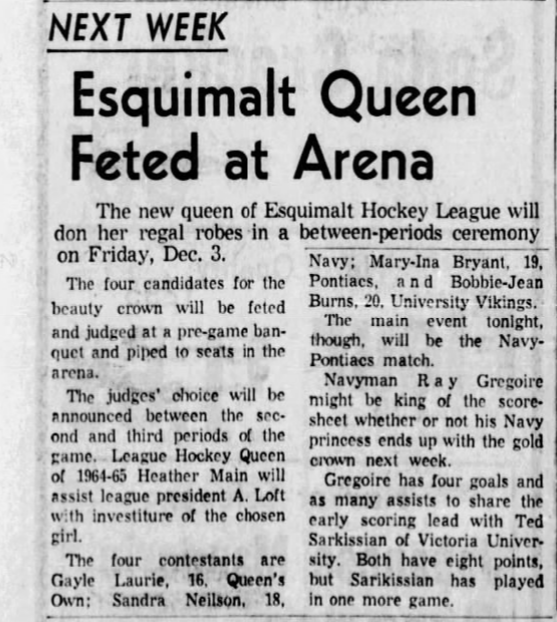
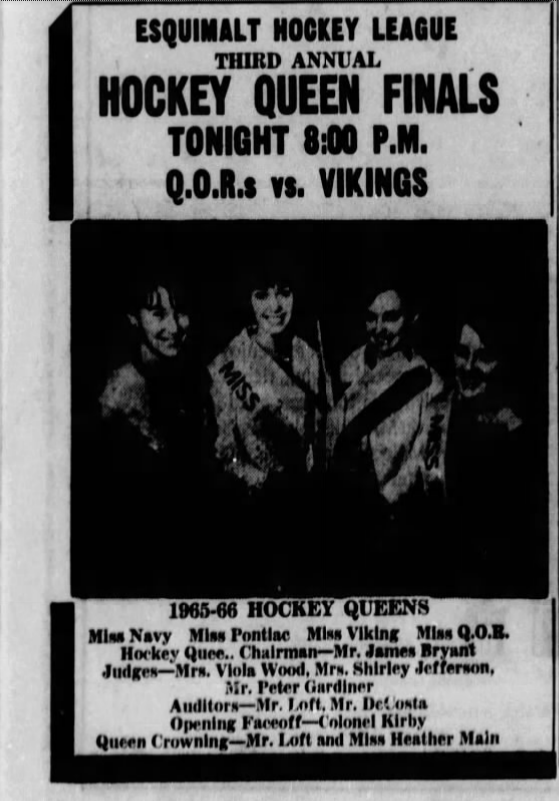
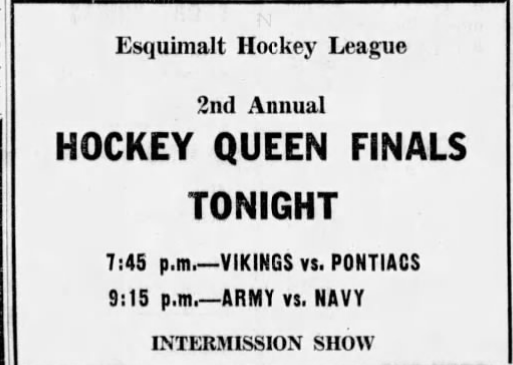
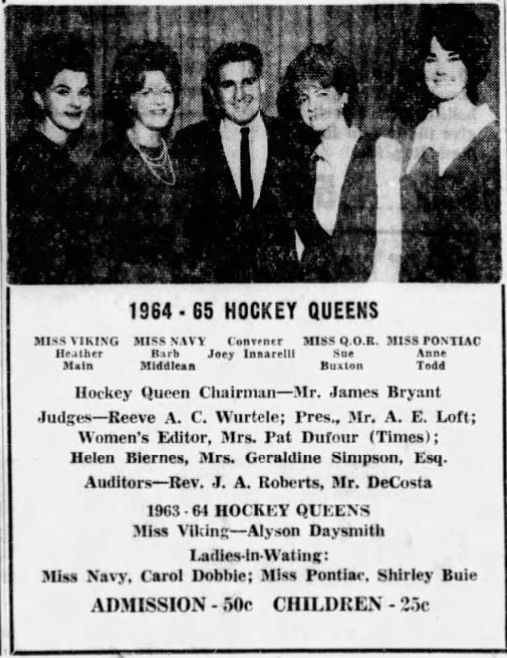
Posted By: Paul - Sat Jan 27, 2024 -
Comments (0)
Category: Awards, Prizes, Competitions and Contests, Beauty, Ugliness and Other Aesthetic Issues, Sports, North America
People-Passing
More accurately, coed-passing. By the mid-1970s it was considered "sort of traditional" at many college football games.What it involved: "a group of fellows sitting behind a coed suddenly picks her up and begins bouncing her — like a sack of potatoes — over their heads to the next row. And up she goes, maybe 75 rows."
So it was like crowd surfing, but entirely involuntary on the part of the coed being flung overhead. And more dangerous, I would think.
According to Wikipedia, "Iggy Pop may have invented crowd surfing at 1970's Cincinnati Summer Pop Festival." I wonder if the idea of crowd surfing spread from music festivals to football games, or if it was the other way around.
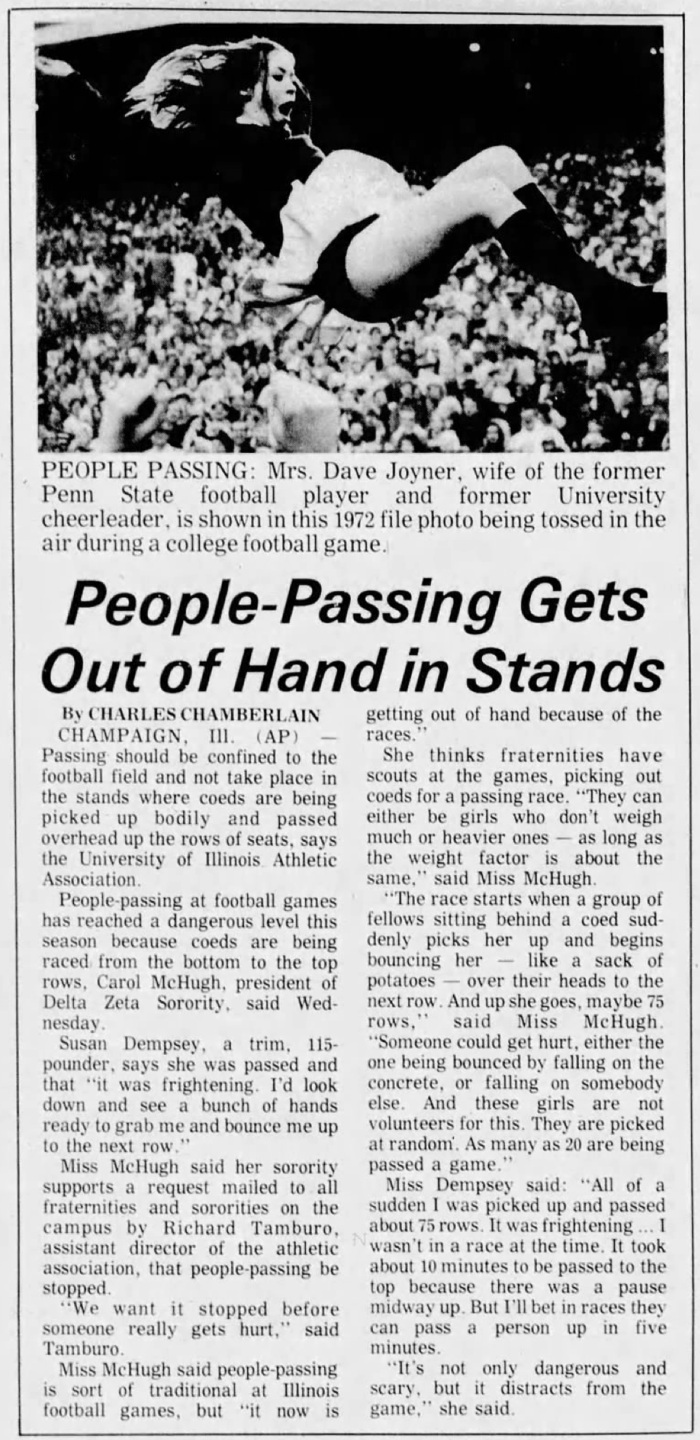
Centre Daily Times (Pennsylvania) - Sep 30, 1976
Posted By: Alex - Tue Jan 16, 2024 -
Comments (0)
Category: Fads, Sports, 1970s, Women
Telescoping Fish Knocker
Not being a fisherman or sportsman of any sort, I had no idea until now that there existed a special tool for whacking your caught fish on the noggin: the fish knocker or fish bat. You can buy a variety of modern ones, as seen here. But I like the patent on a collapsible model.Full patent here.
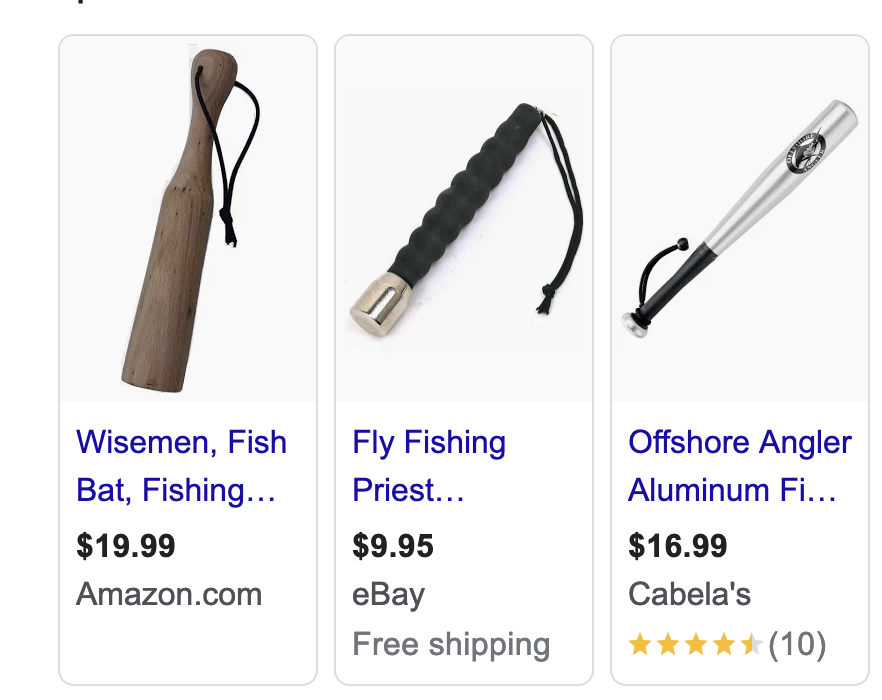
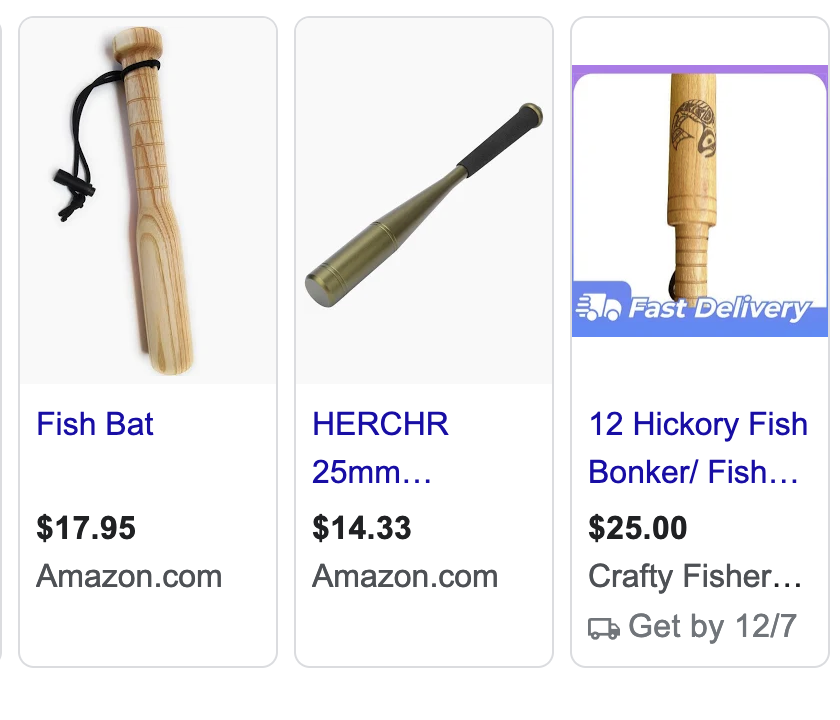
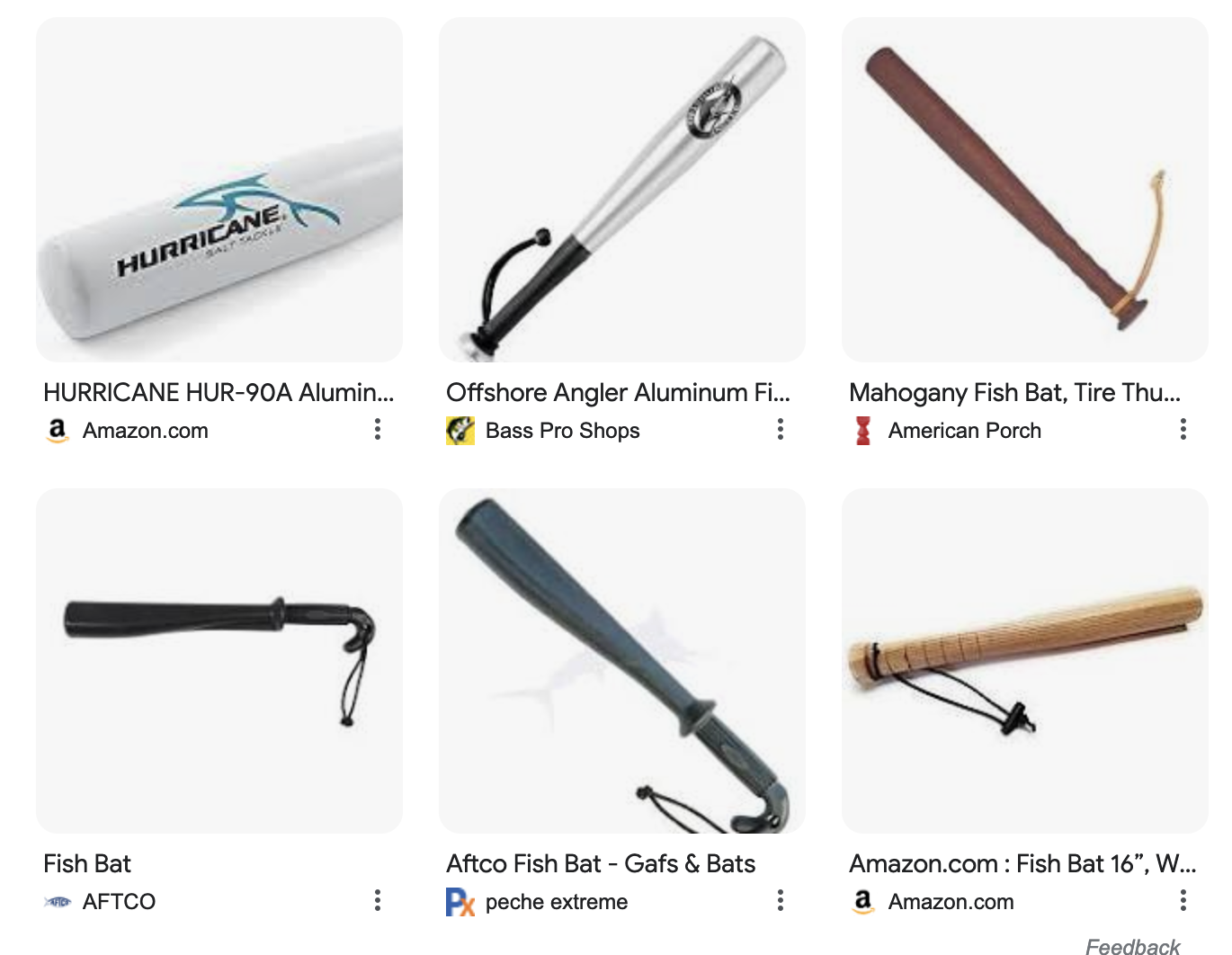
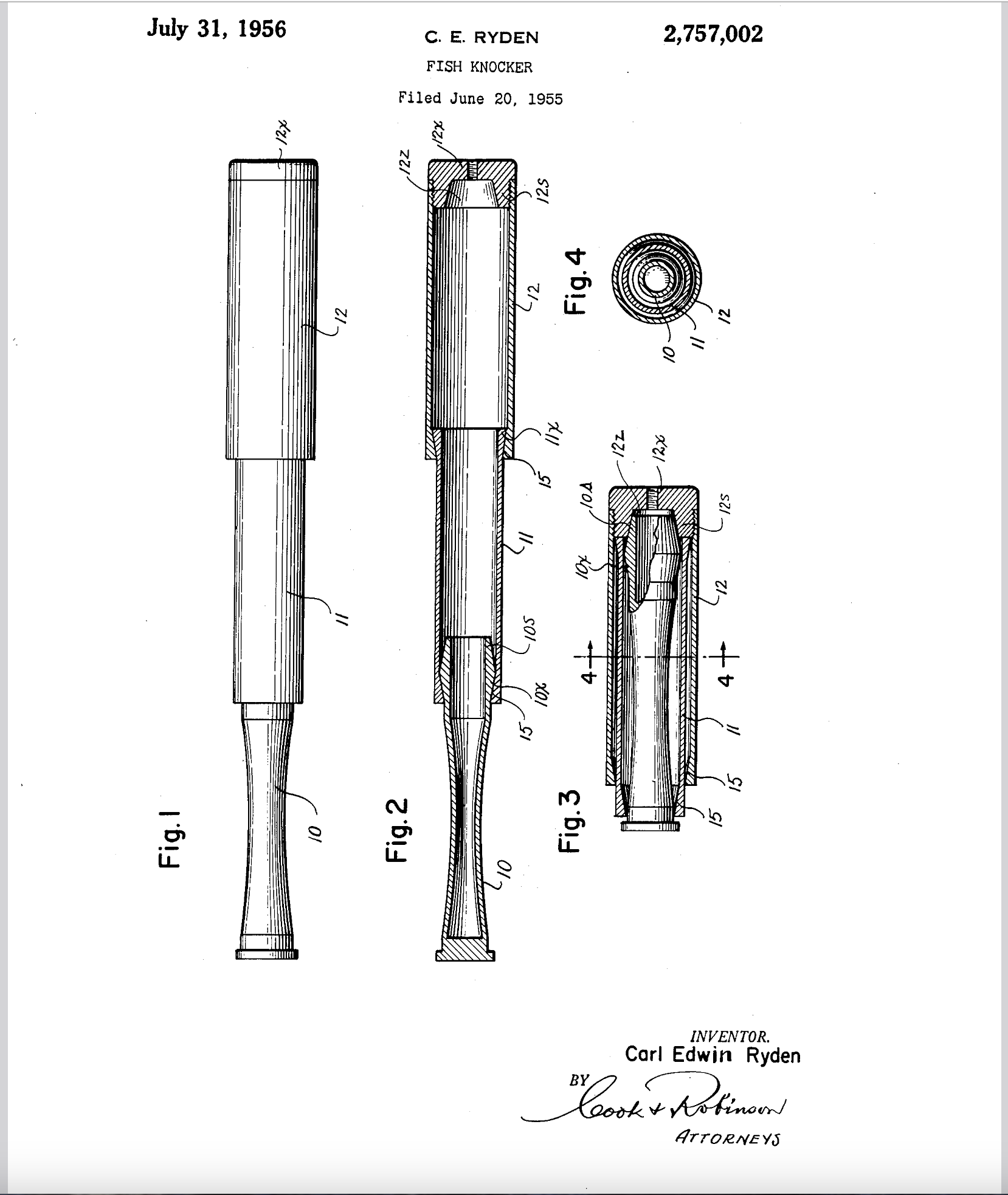
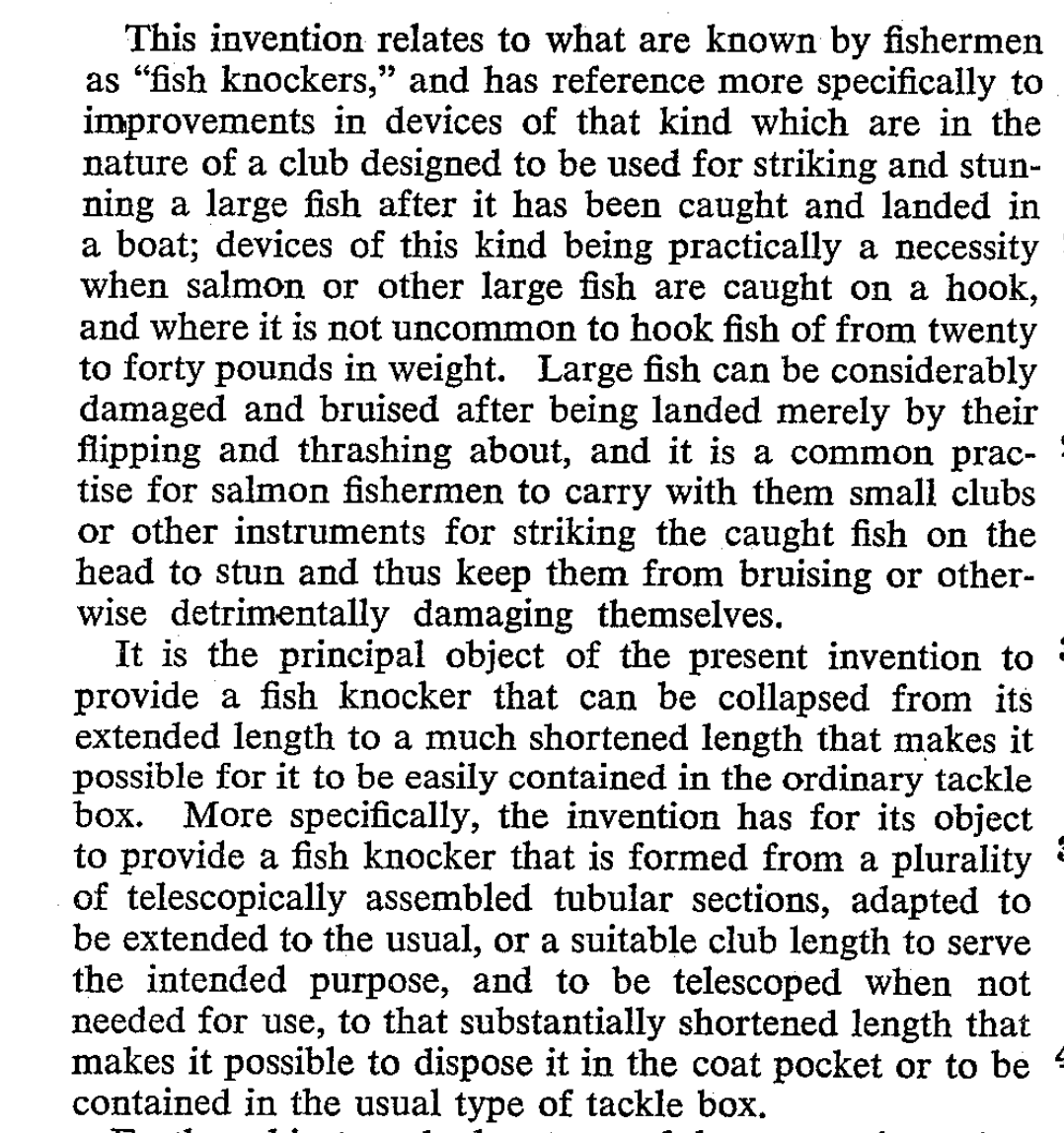
Posted By: Paul - Sat Dec 02, 2023 -
Comments (6)
Category: Sports, Tools, Lakes, Ponds, Rivers, Streams, Swamps and Other Bodies of Fresh Water, Patents, 1950s
Follies of the Madmen #576
Posted By: Paul - Fri Sep 22, 2023 -
Comments (0)
Category: Celebrities, Innuendo, Double Entendres, Symbolism, Nudge-Nudge-Wink-Wink and Subliminal Messages, Sports, Advertising, 1970s, Women
Gurning
In September, after a three-year break due to Covid, the World Gurning Championships will once again be held at the Egremont Crab Fair in England. The crab fair dates back to 1267, and the gurning contest may be almost as old.Explanatory text from Yesterday's Country Customs: A History of Traditional English Folklore.

Posted By: Alex - Thu Aug 24, 2023 -
Comments (1)
Category: Awards, Prizes, Competitions and Contests, Sports
Cycle Ball
Call me a Sports Dummy, but I had never previously heard of Cycle Ball.
Posted By: Paul - Thu Aug 10, 2023 -
Comments (0)
Category: Bicycles and Other Human-powered Vehicles, Eccentrics, Sports
The Sport of Face Slapping
From The New Encyclopedia of Sports (1947) by Frank G. Menke:
Posted By: Alex - Sun Jul 23, 2023 -
Comments (1)
Category: Sports
Hand Grenade Throwing as a College Sport
Lewis Omer’s Hand Grenade Throwing as a College Sport, published in 1918, appears in various lists of books with odd titles.I was curious about the contents of the book, but I initially came up empty handed. The British Library blog reported that it was a nine-page booklet, but that no copies of the title seemed to remain in existence. The Library of Congress didn't have a copy, nor did any other libraries. And the British Library's own copy was destroyed during aerial bombing in World War II.
But after some searching I found what appears to be the text of Omer's booklet reproduced in the Spalding's Athletic Library Official Handbook, published in 1919, and viewable at archive.org.
So why hand-grenade throwing as a college sport? Because, at the time Omer wrote his book, young American men were being sent to fight in World War I, and some colleges had introduced grenade throwing as a sport, to prepare them for the war. Using dummy grenades, obviously, rather than live ones. Omer's booklet provided the official rules for the new sport.
Some more info about the history of grenade throwing as a sport can be found at the History Of The California Interscholastic Federation Southern Section.
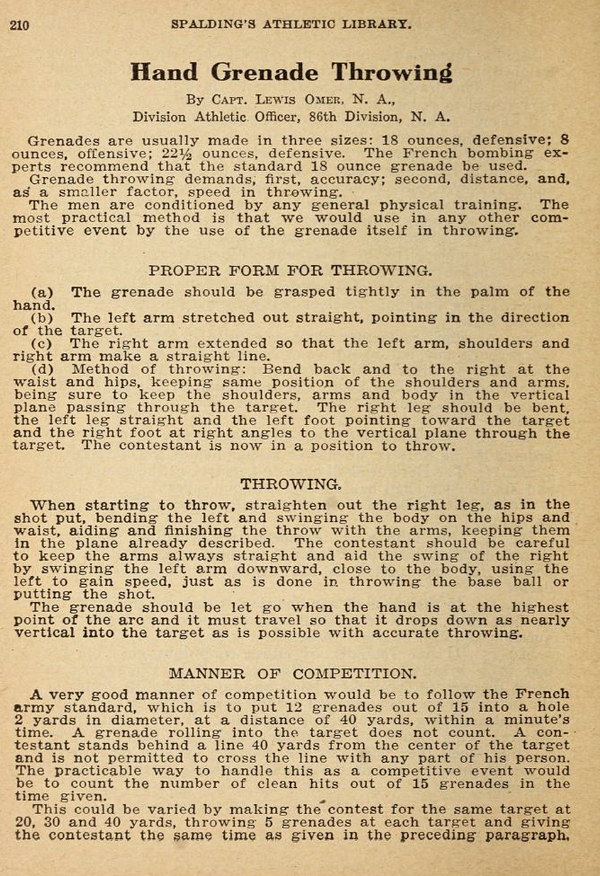
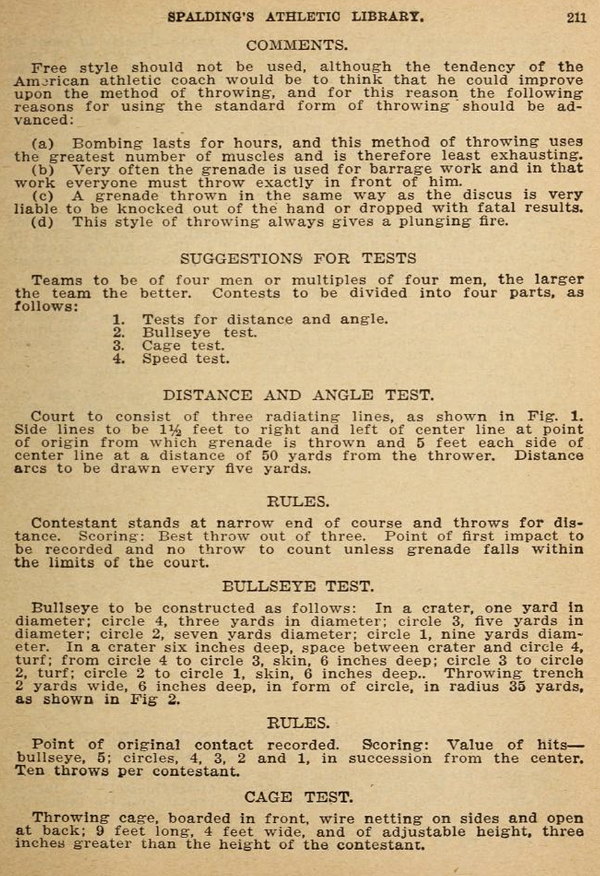
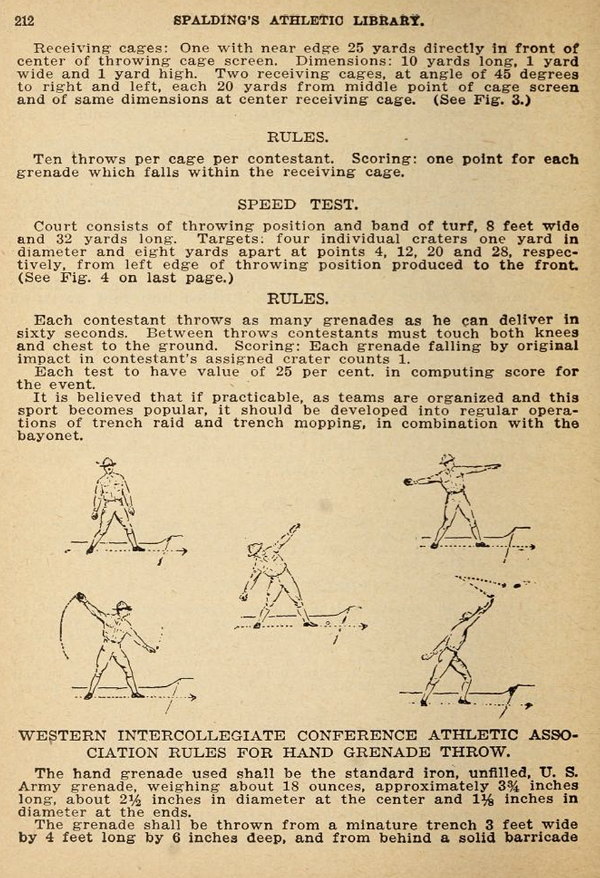
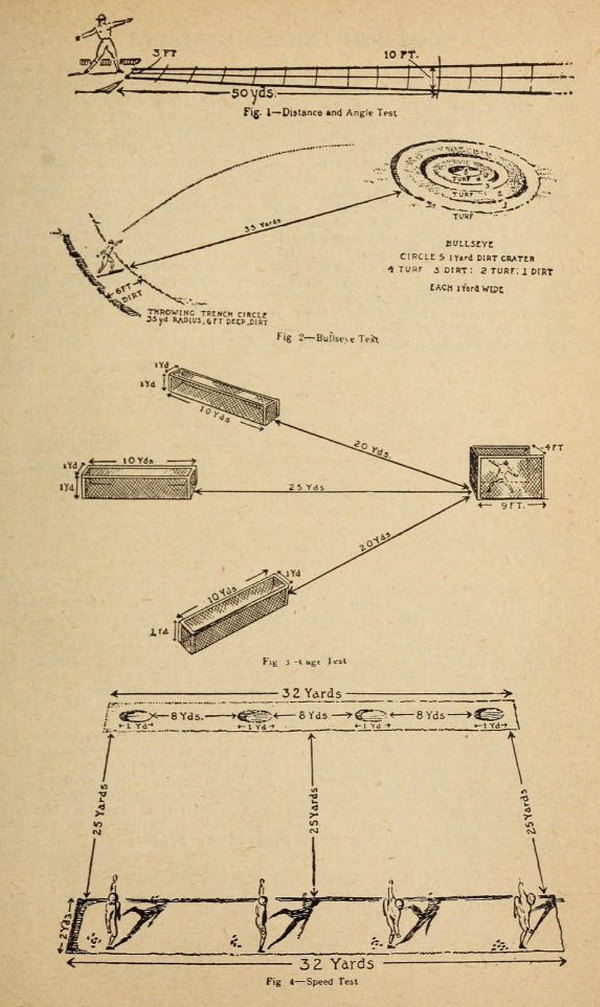
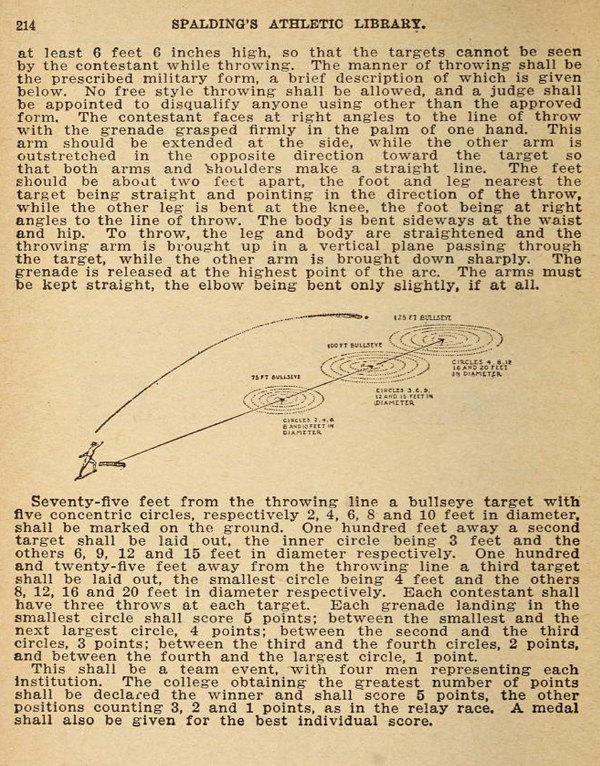
Posted By: Alex - Thu Jun 22, 2023 -
Comments (5)
Category: Sports, Books, 1910s, Weapons
Miss Sportsorama
I find newspaper references to this beauty title from 1955 to 1990. But I do not think they all refer to the same contest. The largest number of references relate to a trout-fishing contest in NY State.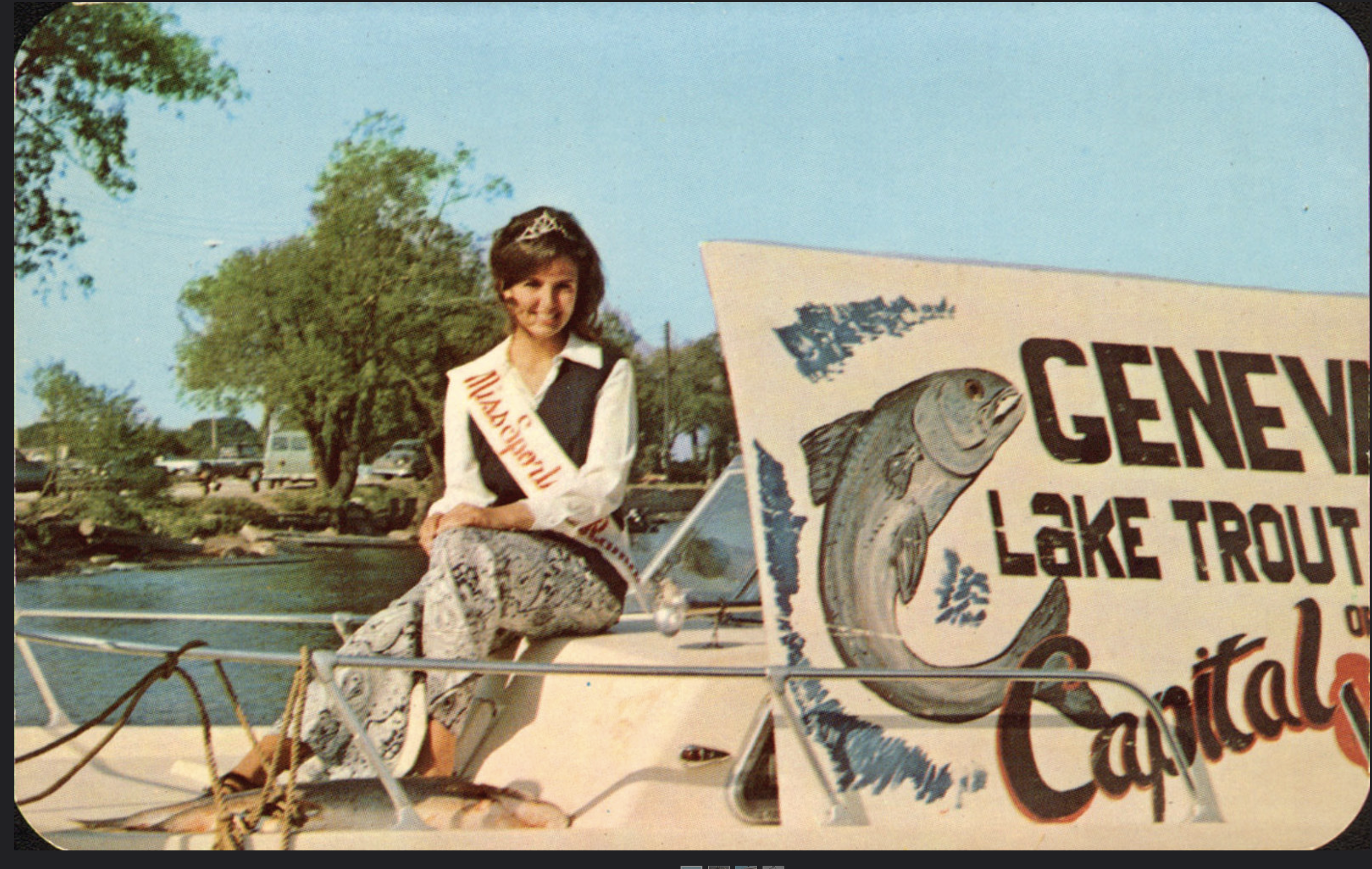
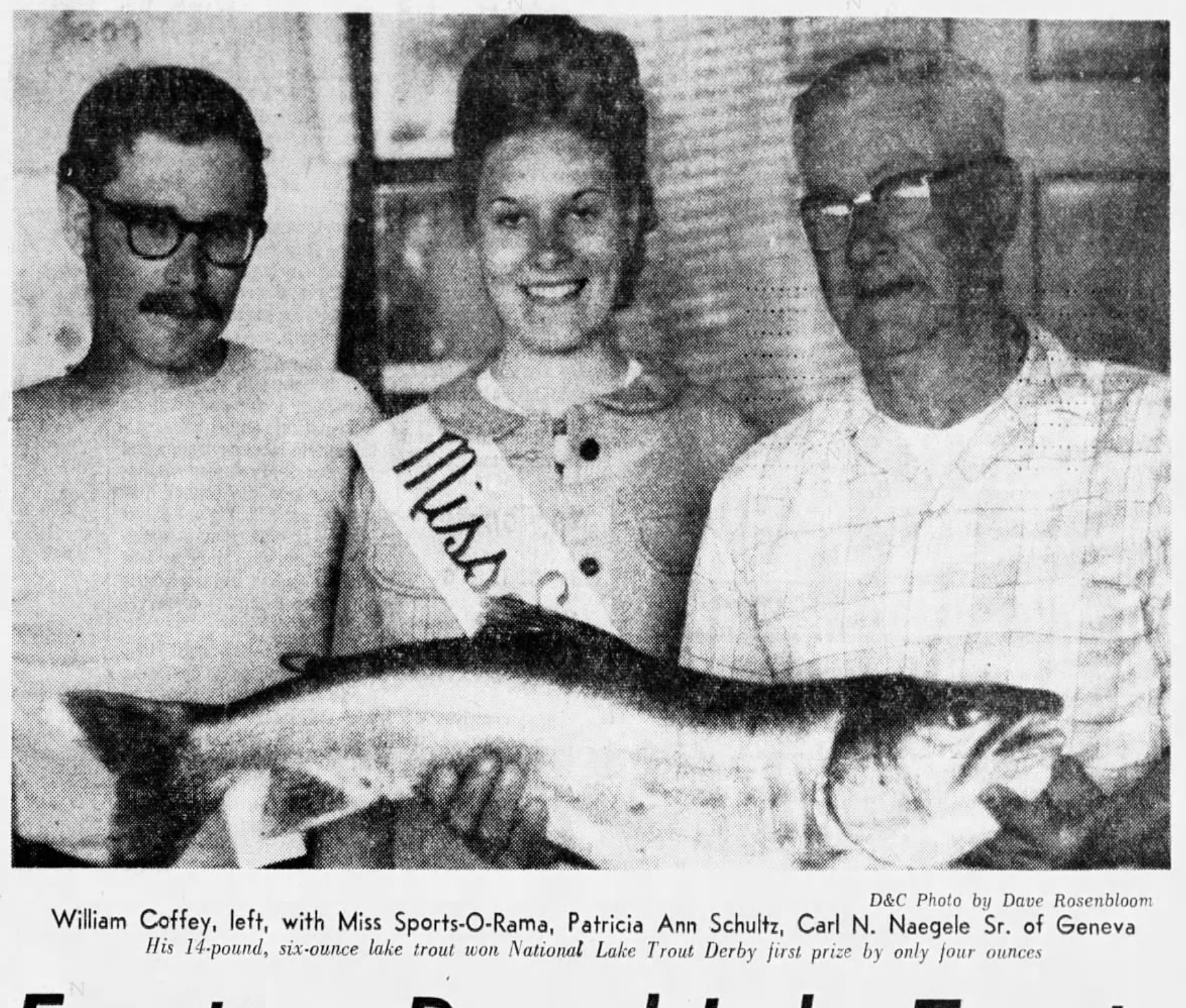
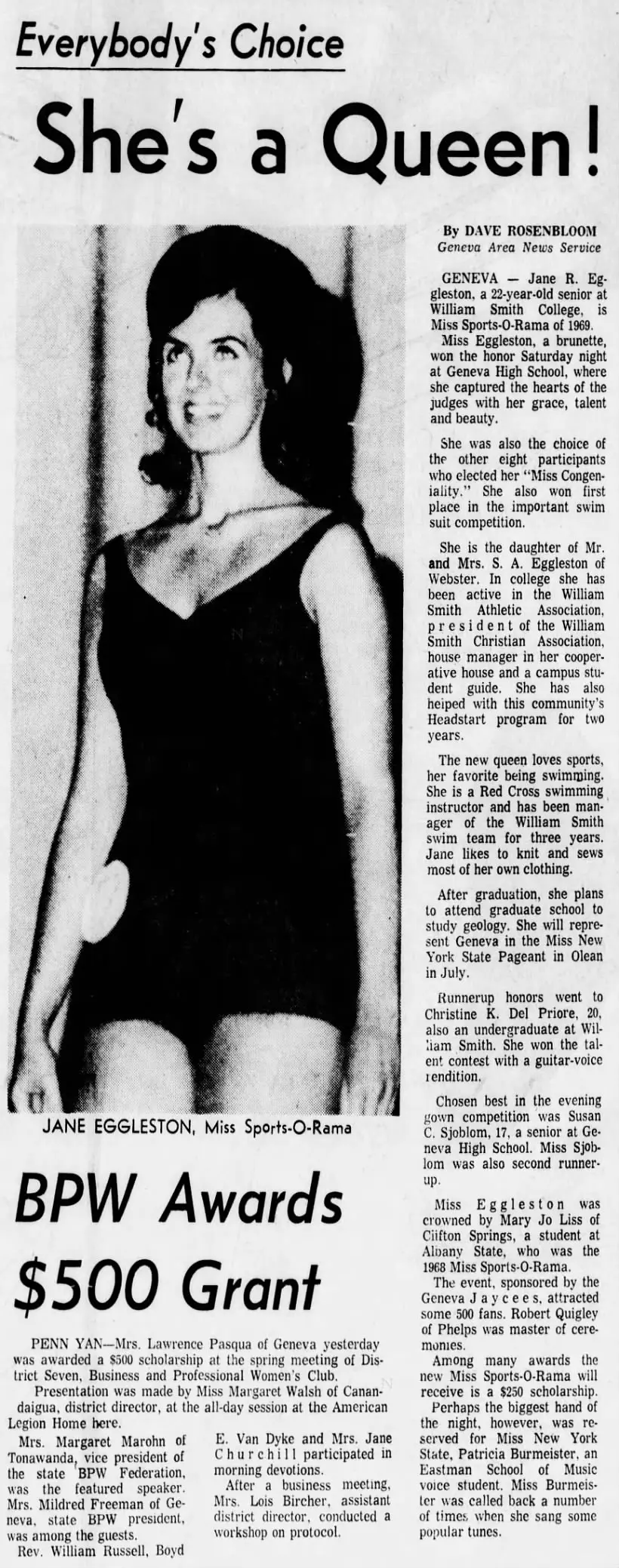
Posted By: Paul - Tue Jun 13, 2023 -
Comments (0)
Category: Awards, Prizes, Competitions and Contests, Beauty, Ugliness and Other Aesthetic Issues, Sports, Twentieth Century
Renske Quax, 2-year-old billiards prodigy
It's impressive that this kid could hold a cue stick well enough to hit the ball at the age of two, let alone sinking shots. That's more coordinated than the 2-year-olds I've known.I couldn't find any media references to him after 1953. So I'm assuming that he didn't grow up to be a billiards pro.

Miami Herald - Nov 13, 1952
Info from Life magazine (May 18, 1953):

Posted By: Alex - Sat Jun 03, 2023 -
Comments (3)
Category: Sports, Children, 1950s

| Who We Are |
|---|
| Alex Boese Alex is the creator and curator of the Museum of Hoaxes. He's also the author of various weird, non-fiction, science-themed books such as Elephants on Acid and Psychedelic Apes. Paul Di Filippo Paul has been paid to put weird ideas into fictional form for over thirty years, in his career as a noted science fiction writer. He has recently begun blogging on many curious topics with three fellow writers at The Inferior 4+1. Contact Us |




